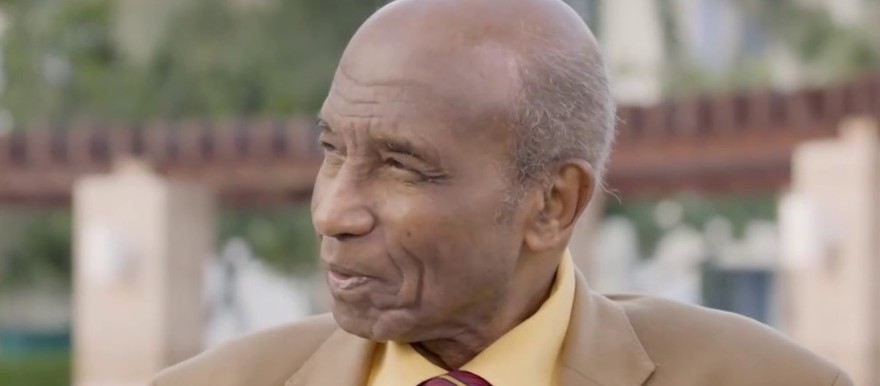Prominent Sudanese politician and former foreign minister Dr. Mansour Khalid has died in Khartoum on Thursday morning at the age of 89.
The cause of death was not immediately known.
Prime Minister Dr. Abdalla Hamdok confirmed Khalid’s death in a statement he issued this morning.
“Dr. Khalid presented intellectual and political inheritance which will remain for long time in the Sudanese political history,” the statement stressed.
Mansour Khalid was born on January 17, 1931, at Omdurman, Sudan.
A fierce intellectual, Khalid received a Bachelor of Laws degree in 1957. It was followed by a Master of Laws from the Wharton School of the University of Pennsylvania three years later.
Khalid attended one of the Universities of Algeria in about 1963 and earned a Doctor of Philosophy degree from the University of Paris in a couple of years with a thesis on the International Regime of the Nile Waters.
The start of Mansour Khalid’s career can be counted from a two-year legal practice he began in 1957. Three years later, he set up a long collaboration with the United Nations, first as a law officer at its New York City secretariat. In 1964, Khalid was sent to Algeria for a year as a deputy resident representative to help establish a UN office there.
The same year, Mansour achieved a transfer to Paris where he worked with UNESCO as an officer responsible for Arab states in the bureau of relations with member states for four years.
In 1968, Khalid was granted leave of absence from UNESCO to serve as a visiting professor at the University of Colorado, lecturing on international law, comparative law, and the law of international aid.
On his return to Paris, Mansour Khalid continued his work at UNESCO until he was summoned back to Khartoum in June 1969, 10 days after the coup of President Jaafar Nimeri.
From 1969 to 1971, he was a minister of youth and social affairs at the government of Sudan. After the overthrow of the pro-Communist coup, President Nimeri appointed Khalid as Foreign Minister. His first priority was securing international cooperation necessary to facilitate the end of the 16-year struggle with the Southern Sudan Liberation Movement.
He achieved a close understanding with the Ethiopian government and the Uganda government which paved the way for successful negotiations. The same year, Khalid fulfilled the duties of a Permanent Representative of Sudan to the UN and was appointed the president of the UN Security Council serving in that capacity till 1975.
Following the ratification in March 1972, he travelled extensively abroad for discussions with the United Nations Secretary-General, and various governments, particularly Britain and the United States, in an effort to raise £50 million for the rehabilitation of Southern Sudan.
Other positions that Mansour Khalid occupied in the administration of Jaafar Nimeiri included Minister of Education (1975-1977), assistant to the president for coordination and foreign affairs (1976-1977).
The author of several books on various concerns facing Sudan, Mansour Khalid details the history of the Nimeiri regime in his 1985 volume, ‘Nimeiri and the Revolution of Dis-May’, and followed that with a 1990 analysis of Sudan’s government before and since Nimeiri’s fall, ‘The Government They Deserve: The Role of the Elite in Sudan’s Political Evolution’.
Khalid had his first encounter with SPLM founder Dr. John Garang in April 1986 at Koka Dam. He was one of the prominent northern Sudanese to join the SPLM movement in the early 1980s.
He last met South Sudan’s President Salva Kiir in Juba earlier this year.




